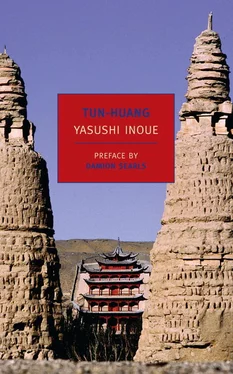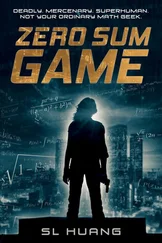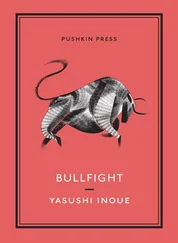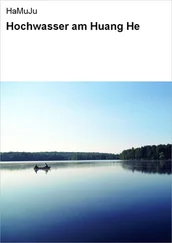Hsing-te was aghast when a soldier told him of the way of life there. Battles were a daily occurrence. Since the Uighur girl was dead, Hsing-te felt that it had been a mistake to come to this remote spot. Yet, oddly, he did not actually regret his return. He felt that destiny had led him there.
In the daylight, Hsing-te saw that the garrison was surrounded on the north, west, and east sides by walls, and was protected to the rear by steep cliffs. On the slopes of the mountains behind the garrison were numerous mounds where war casualties lay buried.
Hsing-te spent three months there. He joined in the battles every other day. Strangely, he had no qualms about dying. Since the Uighur girl was dead, his only justification for having come back was to take part in the fighting. Despite this, Hsing-te was still curious about how she had died. He knew he would never learn about it from Wang-li. Whenever he asked about the girl, Wang-li would suddenly get very angry and become violent.
It was toward the end of October, when signs of winter were already evident in the surrounding mountains and fields, that a messenger came from Kan-chou with orders that the whole garrison was needed there immediately. Hsing-te read the Hsi-hsia orders to his illiterate commander.
That night Wang-li gathered all his troops in the square and addressed them. “Until now we’ve had only minor brushes with the enemy, but at last an all-out war with the Turfans is about to start. Our unit will take part in the battle. As soldiers of the Chinese vanguard, fight bravely so that you won’t stain our honor. Those surviving must dig graves for those who die.”
At dawn the next day, all the men began to demolish the garrison. The work was completed at dusk, and as night fell, they set off toward Kan-chou. The entire force of three thousand cavalrymen pushed on without rest across rivers and sand dunes and through villages, arriving outside Kan-chou the next evening. Hsing-te alone could not keep up with this hard march. A day later, with the two men Wang-li had assigned to look after him, he caught up with the unit, stationed in a clearing outside Kan-chou. Swarms of Hsi-hsia troops gathered there.
The customary review of his troops by Li Yüan-hao before the battle was scheduled to take place two days after Hsing-te’s arrival.
The day before, Hsing-te got a pass and entered Kan-chou. He wanted to see this memory-filled garrison once more. Just as Liang-chou had changed completely, so too had Kan-chou. He stood below the city wall near the beacon, but found it hard to believe that this was the same wall he had stood on with the Uighur girl. Barracks lined the square below it, and the wall had been made even higher with additional stones and mortar. On the wall stood many sentries on duty.
Hsing-te searched for the house he had hidden the girl in, but the area had changed so much that he could not find it at all.
When he had given up looking, he went to the town center. He was almost ready to leave by the East Gate when he heard someone call out Li Yüan-hao’s name. He turned with the crowd and saw in the distance a man slowly riding toward them in the center of the road. There was no doubt that the dignified, stately figure on the horse was Li Yüan-hao, whom Hsing-te had previously seen outside Liang-chou. Hsing-te stopped and waited for him to pass. Li Yüan-hao went by, and just as the next person was about to pass him, Hsing-te felt a shock. He saw a girl, and not only that, but she was identical to the Uighur girl who had supposedly died.
Hsing-te ran up to her horse. Surprised by the sudden intruder, the horse reared. Simultaneously, the girl gave a soft gasp, and an emotion crossed her face, which Hsing-te did not miss. She looked at Hsing-te for an instant; the next moment she tightened her reins, sat upright and looked straight ahead as she rode away. She closed up the distance between herself and Yüan-hao, then passed him. Yüan-hao urged his horse forward as if to pursue her.
Hsing-te stood there astounded at what he had just seen. He was sure that the woman was the Uighur princess; there could be no mistake. The fact that her horse had reared would never have brought such an expression to her face. She was alive. Not only that, she was serving at Yüan-hao’s side as his concubine. Wang-li had lied to him about her death. The woman was alive!
Hsing-te never knew how he returned to his unit after the incident. He vaguely recalled pushing through crowds of soldiers and walking along a straight road with no one in sight. Before he knew it, night had fallen, and the numerous units that filled the open space were building campfires.
He went straight to Wang-li without so much as a glance at the soldiers. He shouted, “I saw her. I saw her with my own eyes. Now tell me all about it!” In Hsing-te’s state of mind, Wang-li was not his respected commander.
Wang-li slowly turned his flushed face from the campfire toward Hsing-te and yelled just as loudly, “Don’t you understand when I tell you that she’s dead?” He had sensed immediately that Hsing-te was speaking of the Uighur woman.
“Don’t lie to me. She’s alive. I saw for myself.”
“Stupid! A dead person is dead!” Wang-li stood up and glared down at Hsing-te. “Just try to say it once more. You won’t get away with it again!” He spoke with such violence that it seemed as if he might really raise his sword against Hsing-te. But Hsing-te felt that he must insist. No matter what Wang-li said, she was alive.
“I saw her. With Yüan-hao…” he began, and then instinctively jumped back. Wang-li had drawn his sword and was slashing about wildly. As he swung it downward, the tip of the sword cut into a log in the campfire and sparks scattered.
“I saw her. I saw her on horseback…” Hsing-te spoke out in desperation and then ran for his life. Looking back, he saw Wang-li pursuing him with his sword. He raced through several units and jumped over many campfires. The fires stretched ahead endlessly and seemed to be waiting for him. He was blind to the tens of thousands of soldiers, to the herds of horses, and to the mountainous piles of supplies. He only felt that the campfires were drawing toward him. Just as he had seen only the campfires which filled the plain and nothing in between on the night two years before when he had climbed the city wall to help the Uighur girl, he now saw nothing but the flames.
But the sea of fires finally came to an end. There was nothing but darkness before him, with not a single flame to relieve it. Hsing-te was completely exhausted and sat down on the grass. He felt the chill of the night dew on his hands and face. Just then he heard someone beside him panting heavily. He turned to see Wang-li looking at him, then he too sat down on the ground, breathing with difficulty.
Between gasps Wang-li tried to speak. Hsing-te, also gasping for breath, said nothing. For a while the two sat facing each other, listening to each other’s breathing.
The next day the tens of thousands of troops stationed outside the city moved to the enormous flat area in the east and lined up in their appointed positions. Troops filed out from the city and also formed up. From the walls the drums started to roll. A short distance from the troops thousands of horses were also in formation.
Yüan-hao began his review of the troops in the early morning. In contrast to the previous time, Wang-li’s unit was in the front line, and its inspection was soon over, but the men nevertheless had to remain there until all the troops had been reviewed.
This time, too, Hsing-te thought that Yüan-hao possessed great dignity, despite his five-foot frame. Although he had seen Yüan-hao riding with the Uighur woman, he felt no hatred or bitterness toward him. He felt that the two incidents were entirely separate.
Читать дальше












